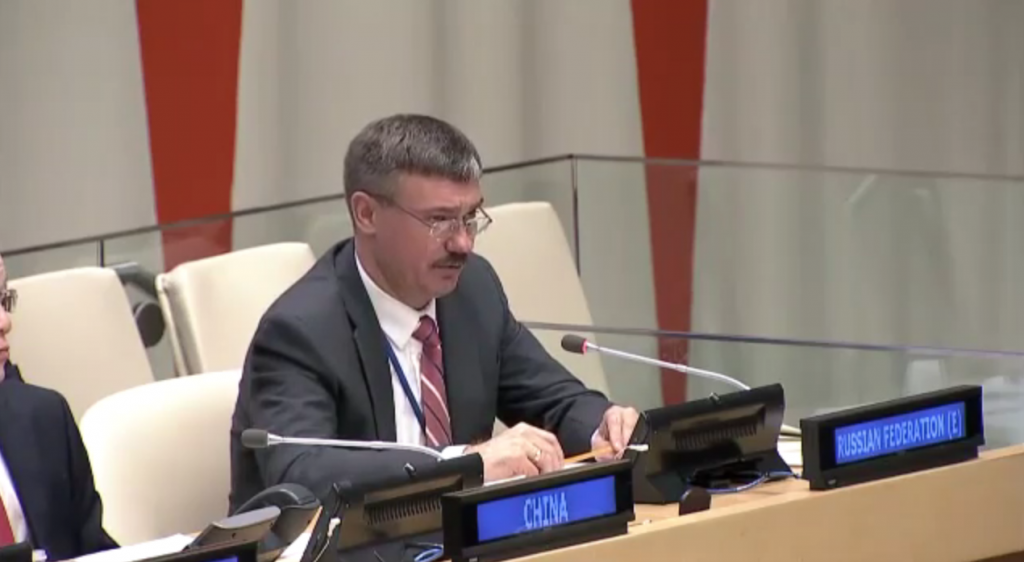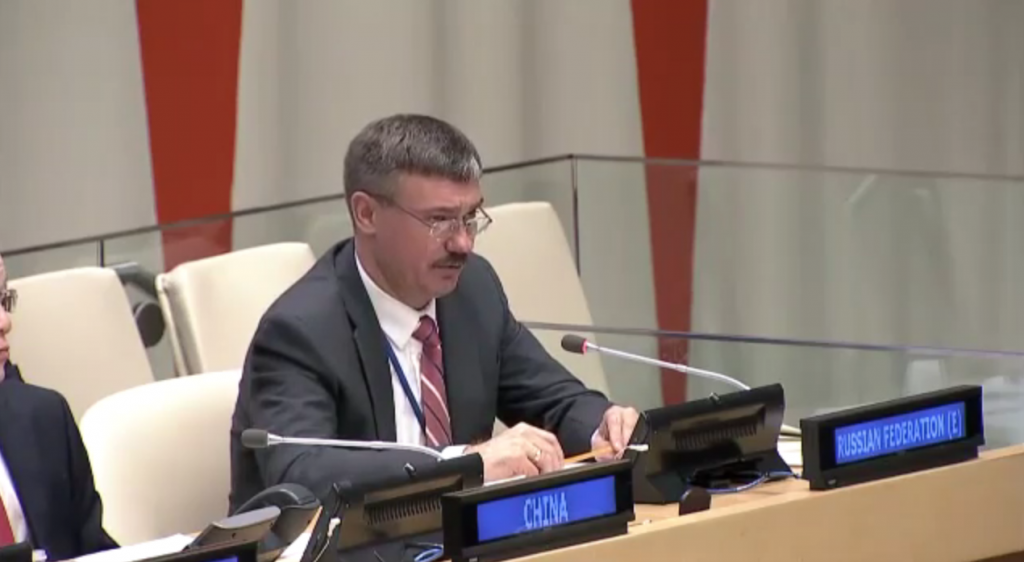Statement by Mr. Peter Iliichev, Deputy Permanent Representative of the Russian Federation to the United Nations, at the High-Level Special Event entitled “United Nations and Shanghai Cooperation Organization: Jointly Countering Challenges and Threats”
Mr. Chairman,
We would like to thank the Secretary-General of the United Nations as well as the leadership of the Secretariat of the Shanghai Cooperation Organization (SCO) and the Secretary-General’s Special Representative, Head of the UN Regional Centre for Preventive Diplomacy in Central Asia for their detailed briefings.
Since the SCO was established 15 years ago its influence on the regional processes has increased significantly. The main field of the Organization’s activities is to provide security in the area of the Shanghai Cooperation Organization. Among the major challenges that the SCO is counteracting are terrorism and extremism, organized crime and drug-trafficking, threats emanating from Afghanistan. There is still a need to build on the potential of the Regional Counter-Terrorism Structure, to improve coordination of the law-enforcement agencies within the framework of the United Nations and other international organizations, to update counter-drug strategy and the program of its implementation, to strengthen the legal basis of cooperation in the field of information security. We pay priority attention to the tasks of implementation of the Program of Cooperation of the SCO member-states in the fight against terrorism, separatism and extremism for the years 2016-2018. We also work on the draft SCO Convention on Fight against Extremism. The SCO joint counter-terrorism exercises “Peaceful Mission” have proved to be very useful. At the same time our cooperation in the SCO is not limited to these fields.
One of the key components of the SCO activities is development of economic interaction. We still need to remove barriers hindering trade, flow of capital and labor force, to deepen industrial and technological cooperation, to build production chains, common transport infrastructure. In this regard there are good perspectives after the start of talks to link together Eurasian Economic Union and the Chinese “Silk Road Economic Belt”. We are convinced that inclusion of all the participants of the SCO as well as the CIS states to this integration process would be a stepping stone to the creation of the large Eurasian space. The dynamics of interaction in the field of tourism, education and youth are also remarkable.
We believe it is important to note that expansion of the SCO membership is one of the priority tools to increase the role and influence of this regional entity, to strengthen its political and economic potential. The sign of the growing authority of the Organization is a substantial number of applications to join it in various categories.
India and Pakistan are the most advanced here. We have all the grounds to expect them to acquire new status at the next CSO summit in Astana in June 2017.
Iran has serious prospects. With the Joint Comprehensive Plan of Action adopted in July 2015 in Vienna, all the judicial obstacles towards Tehran's membership in SCO are cleared.
Another candidate is Afghanistan, which applied for membership in the organization last year in accordance with the rules.
There are, though, some other forms of cooperation of interested states with SCO. Along with the above-mentioned four observer-states Belarus and Mongolia enjoy the same status, among partners in dialogue are Armenia, Azerbaijan, Cambodia, Nepal, Sri Lanka and Turkey. Participation of these countries in SCO activities promotes a richer cooperation in our organization.
I thank you, Mr. Chairman.

